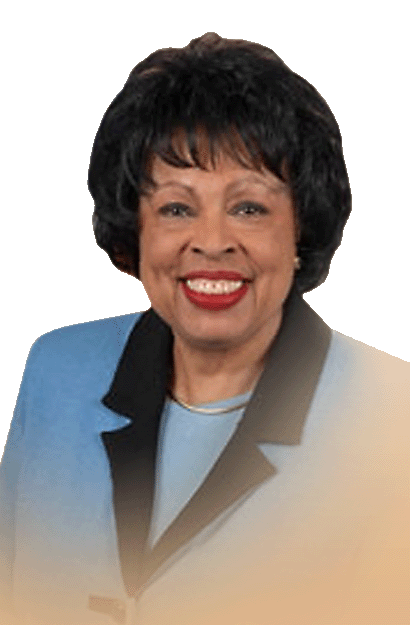 |
 |
 |
 |


| ||||||
|
Congresswoman Diane E. Watson, born in Los Angeles, is a lifetime resident of California’s 33rd Congressional District, which includes Culver City, portions of the City of Los Angeles, and unincorporated areas of Los Angeles County. Representative Watson attended Birdie Lee Bright Elementary School (formerly 36th Street School), Foshay Junior High School, and Dorsey High School. After graduating from High School, Congresswoman Watson attended Los Angeles City College and matriculated at UCLA, where she received a B.A. in Education. She also holds a M.A. in School Psychology from California State University, Los Angeles, and a Ph.D. in Educational Administration from the Claremont Graduate School. Her lifetime commitment to education stems from her involvement in the Los Angeles public schools where she worked as an elementary school teacher and school psychologist. She has lectured at both California State Universities at Los Angeles and Long Beach. In 1975, Congresswoman Watson became the first African-American woman to be elected to the Los Angeles Unified School District Board of Education. Her legacy there includes efforts to expand school integration and toughen academic standards. The year 1978 marked her election to the California State Senate where she was chosen to chair, from 1981 to 1998, the Senate Health and Human Services Committee. She also served on the Senate Judiciary Committee. During her tenure in the California State Senate, Congresswoman Watson became a statewide and national advocate for health care, consumer protection, women, and children. In 1993, she authored the California Birth Defects Monitoring Program Act, which led to pioneering research into the causes of birth defects, and the Residential Care Facilities Act, to ensure that senior citizens receive quality care in nursing and assisted living homes. In 1997, she introduced legislation to toughen food health safety requirements for restaurants. She also played a key role in the enactment of legislation to promote breast cancer research. Congresswoman Watson has been an advocate for commonsense welfare reform in the State of California. She played a major role in formulating the State of California's TANF program, which provides education, child care, and employment to welfare recipients. She sought funding to help teen mothers complete their education and gain jobs through the Cal-Learn program. In 1999, President William Jefferson Clinton appointed Congresswoman Watson to serve as the United States Ambassador to the Federated States of Micronesia. Watson served in this capacity until 2001 when she returned to California to run for Congress in a special election held on June 5, 2001, after the death of Congressman Julian Dixon. She was reelected on November 5, 2002 to a full two year term and has served in each succeeding Congress. Congresswoman Watson is a member of the House Oversight and Government Reform Committee, and is the Chairwoman of the Subcommittee on Government Management, Organization, and Procurement. The Congresswoman is also on the Subcommittee for Domestic Policy and the Subcommittee for on Information Policy, Census, and National Archives. The Congresswoman as well serves on the House Foreign Affairs Committee. In that capacity she serves on the Subcommittee for Africa and Global Health, the Subcommittee on Asia, the Pacific, and Global Environment, and the Subcommittee on Terrorism, Nonproliferation, and Trade. The Congresswoman is also the Chair of the Congressional Entertainment Industries Caucus and a Co-Chair of the Korean Caucus. She is also a member of the Women’s Caucus, the Progressive Caucus, and the UK Caucus. |